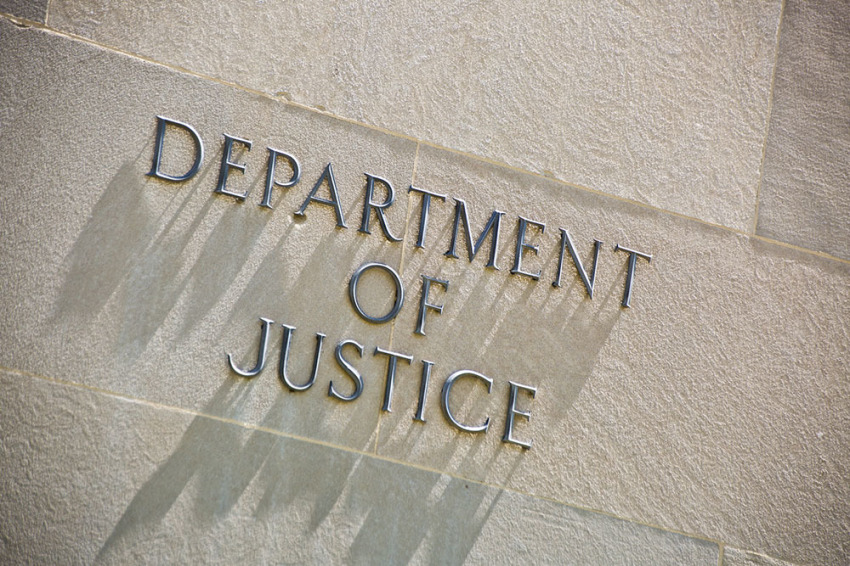DOJ sues New York village for discriminating against Orthodox Jewish community

The United States Department of Justice has filed a lawsuit against a village in New York, accusing it of “targeting” the Orthodox Jewish community by establishing discriminatory zoning laws.
The complaint, filed in the Southern District of New York Wednesday, alleges that the village of Airmont, located in the New York City suburb of Rockland County, has “unlawfully interfered with the rights of Orthodox Jewish community members to freely exercise their religion” by applying provisions of a new zoning code “in a discriminatory manner.”
According to the complaint, the village "imposed unlawful zoning restrictions" that “make it impossible for Orthodox Jewish applicants to win zoning approval of home synagogues and a school.”
In addition, the village was accused of “implementing an 18-month Village-wide moratorium on development which ultimately had no legitimate governmental purpose and was instead used to prevent Orthodox Jewish community members from advancing their religious land-use applications; and arbitrarily enforcing and interpreting local laws to prevent Orthodox Jews from using their privately owned property in ways consistent with their faith.”
The lawsuit contends that Airmont’s actions violated the Religious Land Use and Institutionalized Persons Act, “a federal law that protects religious institutions from unduly burdensome or discriminatory land use regulations.”
The Trump administration, which has made the issue of religious liberty a top priority, established a Place to Worship Initiative in 2018 in an effort to “strengthen awareness of the land use provisions of RLUIPA.”
The Department of Justice is asking the Court to declare that “the Village of Airmont’s Zoning Code, and its arbitrary and discriminatory actions in implementing, enforcing, and applying its provisions, violate RLUIPA” and enjoin Airmont from imposing land use regulations that put an undue burden on the right of religious groups to practice their faith freely.
“In this country, states, towns, and villages cannot make or enforce any law that abridges the privileges or immunities of American citizens, nor can they deny to any person within their jurisdiction the equal protection of the laws,” said Eric Dreiband, assistant attorney general for the DOJ’s Civil Rights Division.
“The Fourteenth Amendment to the U.S. Constitution enshrined these principles in our law, and the Congress extended them when it enacted the Religious Land Use and Institutionalized Persons Act. Zoning ordinances that seek to exclude people and organizations because of their religion violate the law. Targeting Orthodox Jewish individuals for the purpose of excluding them from a community is both illegal and a direct assault on this Nation’s fundamental values,” he added.
Dreiband described Airmont’s actions as “unlawful anti-Semitic conduct” and vowed that “the U.S. Department of Justice will not tolerate it. The Department of Justice will continue to use the full force of its authority to stop this despicable conduct and prevent its recurrence.”
As explained in the complaint, this is not the first time the Village of Airmont has expressed religious animosity toward Orthodox Jews.
“The Village of Airmont came into existence through the efforts of an organization called the Airmont Civic Association, which in 1991 successfully mobilized residents to incorporate as a separate municipality out of the Town of Ramapo,” the complaint noted. “The ACA mobilized in this manner because Ramapo had recently amended its zoning code to allow for home synagogues, or residential places of worship for Orthodox Jews.”
Unease about the rising number of Orthodox Jews settling in the area led to the ACA warning of a “grim Hasidic belt” and sharing support for “keeping the Hasidim out.” One member of the ACA said, “the only reason we formed this village is to keep those Jews … out of here.”
As the result of a previous lawsuit, filed shortly after Airmont’s incorporation, the Second Circuit Court of Appeals ordered the village to recognize the category of “residential place of worship” in its zoning code. Following multiple lawsuits spanning more than a decade, Airmont entered into a consent degree that prohibited the village from “imposing burdens on religious exercise and land use.”
In 2018, three years after the consent decree expired, Airmont implemented a new zoning code that “drastically reworked the land use process in a way that was transparently intended to enable Airmont to further delay and effectively kill zoning applications by Orthodox Jewish community members.”
Acting U.S. Attorney for the Southern District of New York, Audrey Strauss, expressed disappointment that “the spirit of animus against a religious minority” remains prevalent in Airmont.
“Sadly, rather than working to overcome that shameful legacy, Airmont has flagrantly ignored the terms of a court judgment and implemented land use practices that by design and operation are again meant to infringe unlawfully on the rights of a minority religious community. Religious discrimination will not be tolerated. We will remain vigilant to ensure that the right to worship freely and without undue interference is protected for all,” she said.



























